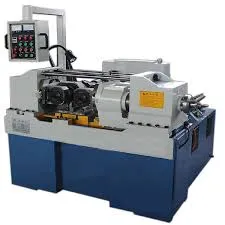
-
 Afrikaans
Afrikaans -
 Albanian
Albanian -
 Amharic
Amharic -
 Arabic
Arabic -
 Armenian
Armenian -
 Azerbaijani
Azerbaijani -
 Basque
Basque -
 Belarusian
Belarusian -
 Bengali
Bengali -
 Bosnian
Bosnian -
 Bulgarian
Bulgarian -
 Catalan
Catalan -
 Cebuano
Cebuano -
 Corsican
Corsican -
 Croatian
Croatian -
 Czech
Czech -
 Danish
Danish -
 Dutch
Dutch -
 English
English -
 Esperanto
Esperanto -
 Estonian
Estonian -
 Finnish
Finnish -
 French
French -
 Frisian
Frisian -
 Galician
Galician -
 Georgian
Georgian -
 German
German -
 Greek
Greek -
 Gujarati
Gujarati -
 Haitian Creole
Haitian Creole -
 hausa
hausa -
 hawaiian
hawaiian -
 Hebrew
Hebrew -
 Hindi
Hindi -
 Miao
Miao -
 Hungarian
Hungarian -
 Icelandic
Icelandic -
 igbo
igbo -
 Indonesian
Indonesian -
 irish
irish -
 Italian
Italian -
 Japanese
Japanese -
 Javanese
Javanese -
 Kannada
Kannada -
 kazakh
kazakh -
 Khmer
Khmer -
 Rwandese
Rwandese -
 Korean
Korean -
 Kurdish
Kurdish -
 Kyrgyz
Kyrgyz -
 Lao
Lao -
 Latin
Latin -
 Latvian
Latvian -
 Lithuanian
Lithuanian -
 Luxembourgish
Luxembourgish -
 Macedonian
Macedonian -
 Malgashi
Malgashi -
 Malay
Malay -
 Malayalam
Malayalam -
 Maltese
Maltese -
 Maori
Maori -
 Marathi
Marathi -
 Mongolian
Mongolian -
 Myanmar
Myanmar -
 Nepali
Nepali -
 Norwegian
Norwegian -
 Norwegian
Norwegian -
 Occitan
Occitan -
 Pashto
Pashto -
 Persian
Persian -
 Polish
Polish -
 Portuguese
Portuguese -
 Punjabi
Punjabi -
 Romanian
Romanian -
 Russian
Russian -
 Samoan
Samoan -
 Scottish Gaelic
Scottish Gaelic -
 Serbian
Serbian -
 Sesotho
Sesotho -
 Shona
Shona -
 Sindhi
Sindhi -
 Sinhala
Sinhala -
 Slovak
Slovak -
 Slovenian
Slovenian -
 Somali
Somali -
 Spanish
Spanish -
 Sundanese
Sundanese -
 Swahili
Swahili -
 Swedish
Swedish -
 Tagalog
Tagalog -
 Tajik
Tajik -
 Tamil
Tamil -
 Tatar
Tatar -
 Telugu
Telugu -
 Thai
Thai -
 Turkish
Turkish -
 Turkmen
Turkmen -
 Ukrainian
Ukrainian -
 Urdu
Urdu -
 Uighur
Uighur -
 Uzbek
Uzbek -
 Vietnamese
Vietnamese -
 Welsh
Welsh -
 Bantu
Bantu -
 Yiddish
Yiddish -
 Yoruba
Yoruba -
 Zulu
Zulu
Customized Precision Thread Rolling Machines for OEM Applications
The Importance of OEM Thread Rolling Machines in Modern Manufacturing
In today's competitive manufacturing landscape, precision and efficiency are paramount. One critical technology that has emerged to enhance both aspects is the OEM (Original Equipment Manufacturer) thread rolling machine. This equipment is specialized for creating high-strength threads on various metal components, which are essential in numerous industrial applications.
Thread rolling, a cold-forming process, involves the deformation of metal to create threads by rolling specially designed dies over the material. This process is preferred over traditional cutting methods due to its advantages, including improved material properties and reduced waste. OEM thread rolling machines are specifically designed to offer enhanced performance, compatibility, and quality assurance, making them indispensable in many production environments.
Enhanced Strength and Durability
One of the key benefits of using OEM thread rolling machines is the enhanced strength of the finished products. The cold working process involved in thread rolling increases the tensile strength of the material due to work hardening. As the threads are formed, the continuous grain flow ensures that the integrity of the metal is maintained, leading to a more durable final product. This is particularly crucial in industries where components are subjected to high stress and wear, such as automotive, aerospace, and construction.
Cost-Effectiveness and Efficiency
OEM thread rolling machines are designed for efficiency. They can produce threads at a much faster rate than traditional machining processes, significantly reducing production time. Moreover, the material savings achieved through thread rolling—since less material is wasted compared to cutting—can lead to substantial cost reductions. Manufacturers benefit from this efficiency not only in terms of operational costs but also regarding reduced lead times for clients.
oem thread rolling machine

Customization and Versatility
Another remarkable aspect of OEM thread rolling machines is their versatility. They can be customized to produce various thread sizes and shapes, making them suitable for different applications. This flexibility allows manufacturers to meet the specific requirements of their clients without investing in multiple machines. Additionally, many OEM machines incorporate CNC (Computer Numerical Control) technology, further enhancing precision and the ability to produce complex geometries.
Quality Assurance and Reliability
Quality control is a significant concern in manufacturing, and OEM thread rolling machines are built to stringent standards to ensure reliable performance. These machines often come equipped with advanced monitoring and diagnostic tools that maintain quality throughout the production process. This level of oversight not only helps in identifying potential issues early but also ensures that the products meet industry regulations and standards.
Conclusion
In summary, OEM thread rolling machines represent a critical advancement in manufacturing technology. Their ability to produce high-strength, durable threads with unmatched efficiency makes them a vital asset for any production facility. As industries continue to evolve and demand greater precision and customization, OEM thread rolling machines will undoubtedly play an increasingly important role in shaping the future of manufacturing. Investing in this technology not only enhances product quality but also positions manufacturers for success in a fast-paced global market.
